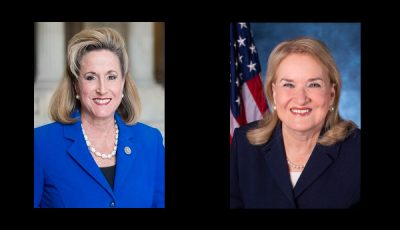Democrats Introduce Bill to Codify Net Neutrality
 WASHINGTON — Democrats in both chambers of Congress recently introduced the Net Neutrality and Broadband Justice Act in one of the latest efforts to codify net neutrality into the federal code of the United States and further protect the concept of the open internet.
WASHINGTON — Democrats in both chambers of Congress recently introduced the Net Neutrality and Broadband Justice Act in one of the latest efforts to codify net neutrality into the federal code of the United States and further protect the concept of the open internet.
“The Net Neutrality and Broadband Justice Act reflects the undeniable fact that today, broadband is not a luxury. It is essential,” said Sen. Ed Markey, D-Massachusetts, in a statement released July 28. He further explains in the statement that the bill intends to protect the Federal Communications Commission (FCC) and the agency’s authority to regulate the internet and maintain digital equity.
The Net Neutrality and Broadband Justice Act would give the Federal Communications Commission codified regulatory authority over broadband by classifying services under the protection of Title II of the Communications Act of 1934. Title II, according to a Broadband Breakfast analysis, would have “greater regulatory muscle to make providers respect the principle of common carriage – that is, the traffic on their networks will not be throttled, sped up, or given preference.”
“My legislation would reverse the damaging approach adopted by the Trump FCC, which left broadband access unregulated and consumers unprotected. It would give the FCC the tools it needs to protect the free and open internet, creating a just broadband future for everyone in our country. I thank my partners for their support for this critical legislation,” Sen. Markey added.
Markey also participated in an “ask me anything” session on the content aggregation social network Reddit under the r/politics subreddit.
Tomorrow I'm introducing my Net Neutrality and Broadband Justice Act. Join me on r/politics at 5:30pm ET for a @Reddit AMA. I'm ready to answer all your questions about #NetNeutrality and a free and open internet. https://t.co/qVWB3PXG56 pic.twitter.com/GLdrSDUE14
— Ed Markey (@SenMarkey) July 27, 2022
Sen. Ron Wyden, D-Oregon, is also a part of the coalition working with Markey to work the Net Neutrality and Broadband Justice Act through the GOP-held Senate and the House.
“For anyone who wants more innovation, more voices and less corporate control of the internet, net neutrality is an absolute no-brainer,” Wyden said in a joint statement with Markey and other members of the Senate and Congress. “I wrote the first Senate net neutrality bill to protect the open internet, where bits are bits and no one has to pay extra for digital toll roads just to learn, shop or get health care online.”
Sen. Wyden also was one of the lawmakers who wrote Section 230 of the Communications Decency Act of 1996.
I wrote the first Senate #NetNeutrality bill to protect equal access to a free and open internet. Today I'm proud to partner with @SenMarkey and @DorisMatsui to introduce our legislation to restore net neutrality once and for all. https://t.co/73CAzw35na
— Ron Wyden (@RonWyden) July 28, 2022
Rep. Doris Matsui, D-California, is the primary sponsor of the bill in the Democratic-controlled House of Representatives.
“Trump-era deregulation has left the internet landscape without comprehensive consumer protections, allowing discriminatory practices that leave everyday Americans facing the consequences,” said Rep. Matsui in the same statement as Markey and Wyden. “This bill will give the FCC the power to adapt to the ever-changing marketplace, defend equitable access and promote free expression and innovation online.”
House Speaker Nancy Pelosi, D-California, issued a statement in support of Matsui’s support to introduce the action and push for it.
“Spearheaded by Congresswoman Doris Matsui, the Net Neutrality and Broadband Justice Act will secure a fairer, more accessible digital future by enshrining into federal law a common-sense value: everyone deserves access to affordable, high-speed internet service,” Pelosi said.
FCC chairwoman Jessica Rosenworcel also issued a statement in support of the legislation.
“The pandemic made clear internet access is no longer a luxury, but a necessity—and that consumers don’t just need broadband, they need to be able to hold their providers to account,” Rosenworcel said. “After all, everyone should be able to go where they want and do what they want online without their broadband provider making choices for them. I support net neutrality because it fosters this openness and accountability.”
FCC commissioner Geoffrey Starks, politically aligned with chairwoman Rosenworcel, also announced his support.
“That approach is undergirded by a voluminous record and overwhelming public support, and it has been tested in court,” said Starks. “The Net Neutrality and Broadband Justice Act would codify just that.”
Sens. Maria Cantwell (D-Wash.), Cory Booker (D-N.J.), Amy Klobuchar (D-Minn.), Richard Blumenthal (D-Conn.), Jeff Merkley (D-Ore.), Elizabeth Warren (D-Mass.), Tammy Baldwin (D-Wis.), Bernie Sanders (I-Vt.), Ben Ray Luján (D-N.M.), among several other Democratic senators have joined with Sens. Edward J. Markey and Ron Wyden as original Senate co-sponsors, per Markey’s office.
Many organizations have announced their support for the Net Neutrality and Broadband Justice Act. These groups include the American Civil Liberties Union, American Library Association, Association of Research Libraries, Electronic Frontier Foundation, and many others.
The @FCC must be able to ensure that the public interest comes before a broadband provider's interest. The #NetNeutrality and Broadband Justice Act will do just that. Thank you @SenMarkey @RonWyden and @DorisMatsui! https://t.co/l3rM2QCRzv
— JLeventoff (@LeventoffJ) July 28, 2022
“Adopting the Net Neutrality and Broadband Justice Act is an important step towards ensuring that free speech is as vigorously protected online as it is offline,” said Chad Marlow, senior policy counsel for the American Civil Liberties Union in a statement of support.
Though not involved with this effort, the Free Speech Coalition has previously supported net neutrality as a means to maintain digital equity for adult industry professionals and independent adult content creators. In 2017, the coalition signed a letter with well over 150 organizations asking the then-Republican-controlled FCC to keep net neutrality rules in place.
Brendan Carr, the lone GOP FCC commissioner, has yet to issue a statement regarding the Net Neutrality and Broadband Justice Act. It is likely that Carr will oppose the bill, given that he is of the mind that internet service providers maintain the best option to maintain an open internet, an opinion that was shared by many in the Trump Administration, including former FCC chair Ajit Pai.













